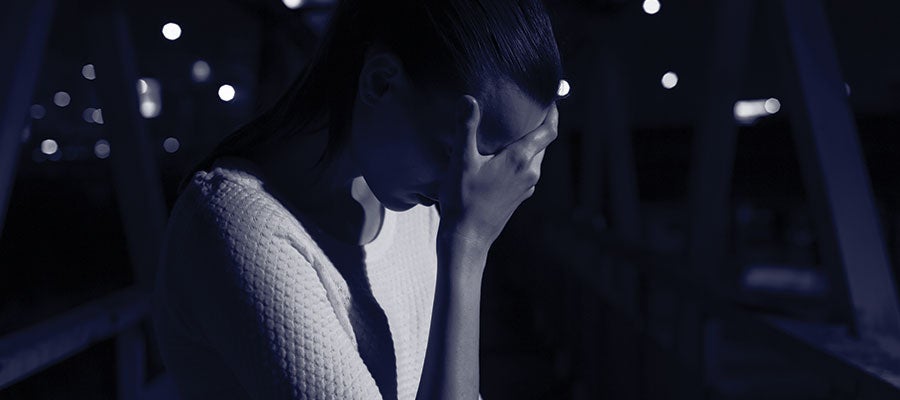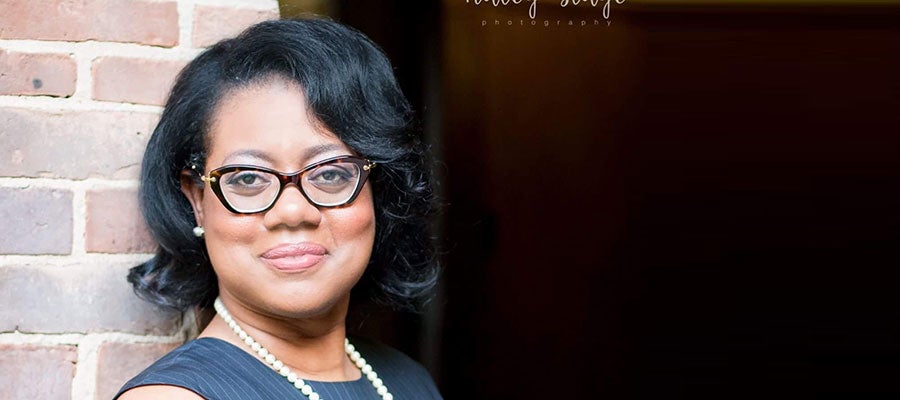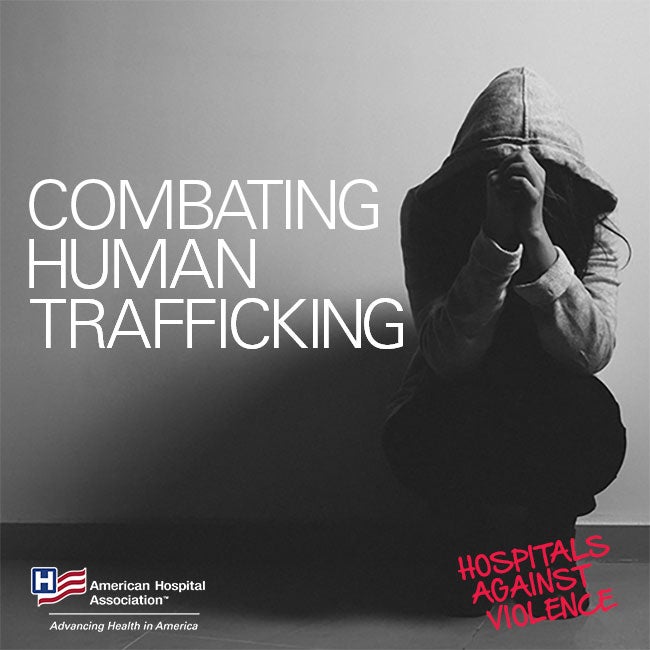

Nurses make a difference in combating human trafficking
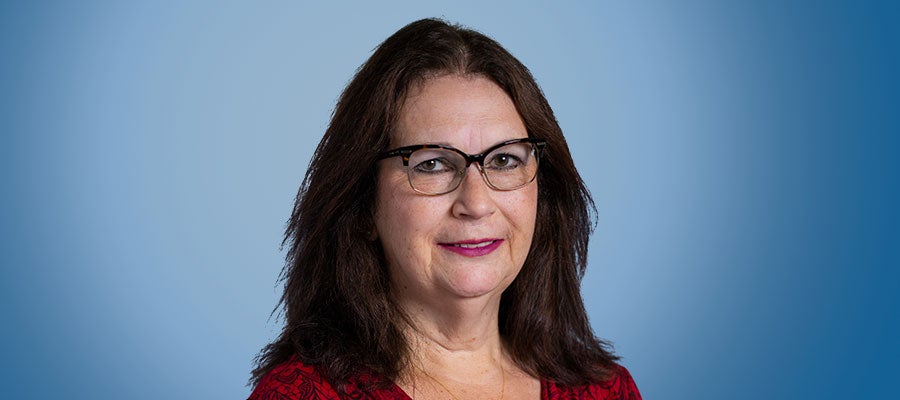
Melissa Graham
By Bob Kehoe
Human trafficking touches many more lives in America than people realize. Take it from Melissa Graham, a board-certified registered nurse at Houston Methodist Hospital.
“I have a niece who was taken into human trafficking about five years ago in Indianapolis. She was 18 at the time. She was missing for about six months,” Graham says.
The FBI was able to track the young woman through her cellphone, which her captors never took from her, and authorities rescued her in Oregon. She and the others whom the perpetrators had ensnared were about to be shipped out of the country. That event stuck with Graham and she vowed to do something about human trafficking.
She’s made good on her pledge by helping to spearhead efforts at Houston Methodist Hospital to raise awareness about human trafficking. She and her colleagues Kimberley M. DuBose, operations manager of emergency services, and Johnie Leonard, nursing director of emergency services, and others are working to enact a human-trafficking policy at Houston Methodist Health System.
“I had always said that if there is any way I could make a difference in preventing human trafficking, I would, and Houston Methodist has let me fly with it. It’s taken on a life of its own,” Graham says.
She also chairs the human-trafficking committee at Houston Methodist, and takes part in regular meetings of the Houston Area Human Trafficking Health Care Consortium along with representatives from Harris Health Ben Taub Hospital, Houston Methodist Hospital, Texas Children’s Hospital, Baylor College of Medicine, Memorial Hermann Health System and San Jose Clinic. The participating organizations share information about what each is doing to identify and respond to the needs of human-trafficking victims who present for treatment. Other groups, including the Harris County Attorney’s office and the Houston Police Department, also take part in the consortium.
“We want to make sure that [victims of exploitation] have all the resources they need to get out of that life completely,” Graham says. “That’s why we’re making all these alliances.”
DuBose adds that it’s important to consider the psychological and social health needs of victims and to be able to connect them with resources that can assist in finding a safe place to stay or some type of employment so they can support themselves.
Just how widespread the problem of sexual exploitation is became even more apparent to Graham after Houston Methodist President and CEO Marc L. Boom, M.D., shared the story of her niece being abducted in a letter to staff to call attention to human trafficking.
“I got emails from almost every single level of the hospital sharing stories [about human trafficking] — dietary, housekeeping, doctors, nurses,” Graham says. “I think most people live in a bubble and probably think it happens to someone else, but once somebody talks about it and starts looking into it, they see that this is a really big problem in Houston.”
Her niece’s experience certainly opened Graham’s eyes to the scope of the problem in a way she never expected. And it’s also opened her mind about the difference one person can make in the fight against human trafficking.
“It’s very humbling. One person can make a very big difference. I’m a big example of that. I would never have dreamt how far this has gone in such a short time,” she says.
Speaking up for the voiceless
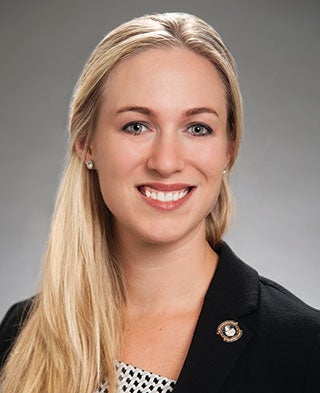
Rachel D. Fischer, R.N.
Fischer’s early life growing up in Detroit was painful. Her mother was prostituted by a gang. She had been in the foster care system and lived in many homes growing up. She spent time on the streets learning how to survive and ended up being a victim of the sexual exploitation that many trafficked youth experience. “I saw firsthand these girls being stamped ‘property of’ and drove my mom to hotels at different points, not really understanding it all,” she says.
Fischer would fall prey to commercial sexual exploitation the way so many teenagers do. She was duped and coerced. A couple lured her in with an online ad and met her at a mall and presented an opportunity to make great money. “They told me they’d make me famous,” she says. They took exploitative photos of her, which they later used to blackmail her and lead her into unpaid work at bachelor parties and other situations. However, she survived the harrowing experience and began a long road transforming her life.
Fisher later went on to nursing school and earned a degree. “I found my identity in a greater purpose rather than as a homeless youth who was sexually exploited and full of shame and guilt,” Fischer says. In addition to her work as a nurse, Fisher volunteers once a month with groups like Elijah Rising or Rescue Houston to go to the so-called “Bissonnet Track” neighborhood in southwest Houston, an area with a brisk open-air sex trade that continues despite thousands of arrests over the past several years by the Houston Police Department. There she talks with prostitutes and pimps. “We would walk down the streets with the girls in the middle of the night and meet them where they’re at and say, ‘What are you struggling with? Is there anything we can get for you? Can we pray for you about anything?’” Fischer says.
Fischer and the other activists ask the pimps for permission to give the girls gift bags, which sometimes include a rose or a card of encouragement to let them know they’re loved and not forgotten. The packs also discretely included the Rescue America Hotline number so that when the girls are ready and in a safe place they can call to be rescued. With this delicate population, there may be an anchor baby, drug addiction or other factor that holds the victim hostage in the life, so anticipatory guidance is key.
“Rescue” is not how Fischer and others refer to it, but rather shining a light in a dark place so that the girls know that there is hope and help when they are ready.
“My personal motto is, ‘From the street, for the street.’ I really feel that what I went through as a child [prepared me for this]. It’s like my flu shot, my immunization so I can face what I’m doing now,” Fischer says.
Reflecting on her life today and the work she’s doing as a forensic nurse to serve the legal system, patients and exploitation victims, Fischer says she’s honoring her late brother, who was murdered when she was 13. “He used to be my protector at the gang level. He would make sure I was safe. He always wanted me to be a lawyer, so I could get my dad and him and everybody in the club out of trouble. But instead of getting criminals out of trouble, I’m now able to be a voice for the voiceless through forensic nursing and working with trafficking victims,” Fischer says.


